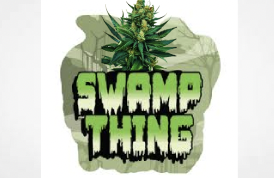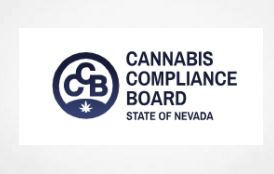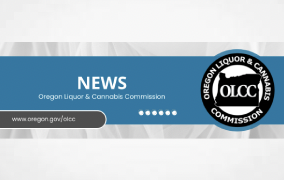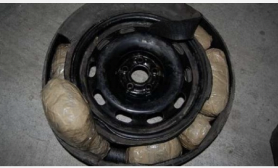21 November 2016
Strategic Legal Counsel | [email protected]
119 1st Ave. South, Suite 420 | Seattle, WA 98104 | Office: (206) 355-5527
Chris Lynch of NWMJ Law PLLC Seattle answered some questions we had about the results of the election and the cannabis ballots last week
Please note that Chris had answered our questions before the Sessions AG appointment.
We have kept his responses in full as we may well have one of those other options sometime in 2017.
Our approach with a Trump administration will be like watching an episode of the Apprentice. Keep everything on the table when it comes to options as we have a sneaky feeling he’ll be running his hires in the administration like a reality TV show.
Chris Lynch responds to our questions of last week.
Above the Law wrote this week that Trump’s big three choices for AG will be Chris Christie, Rudy Giuliani and Pam Bondi from Florida. Out of these choices 3 who would you plump for and why ?
To be clear, Christie, Guiliani or Bondi would be bad for the industry. Chris Christie may be the worst of the three candidates, as he has come out publicly and said that he would try to shut down markets of states that have legalized adult use (Christie made those statements while he was campaigning for the presidency, but I do not see any reason why his position would change). The only positive is that Christie has not (yet) shut down the New Jersey medical market, but it is one of the most tightly regulated markets.
Rudy Guiliani is likely equally as bad for the industry, as his terms as Mayor saw New York City turned into the marijuana arrest capital of the nation. Guiliani has also endorsed the War on Drugs, and has vowed to prosecute and imprison both recreational and medical users.
Pam Bondi, while I think she is the least likely of the three to be elected because of her prior involvement with Trump scandals, may be the best choice for the industry—if nothing else, by process of elimination. Although she vehemently opposed Florida’s first medical marijuana amendment in 2014, she has claimed that she will stay silent in opposition to the new Amendment 2 that passed last week. We will see if that is the case.
Ultimately, all three proposed AGs are bad for the industry, but I think their ire against the industry may be tempered by the amount of money the industry promises; Trump is purportedly a businessman, after all.
Do you think Trump may look at any other options for AG and who do you think would be a good appointee for the industry ?
Early during his campaign (July of 2015), Trump said he would choose Trey Gowdy, a South Carolina Senator for his Attorney General. There is also some speculation that he may choose Ted Cruz.
Of these two potential AGs, Ted Cruz is probably the best for the industry. Although he is a staunch opponent of recreational marijuana, he believes that that the issue should be left to the states. He has noted that he personally would vote against it, but he has also said that he “believe[s] that legalization is up to the states to make a determination. I think it is appropriate for the federal government to recognize that the citizens of those states have made that decision.” If Ted Cruz is appointed and sticks to the belief that the states have a right to decide for themselves, it will at least maintain the status quo of the industry right now.
In your opinion do you think will the Federal government try to re-assert some sort of control over the States with regard to the legalized Cannabis industry through various agencies or will they take a laissez faire approach ?
The industry will have a much better idea of how the federal government will respond in the next 70 days as Trump appoints his transition team and cabinet, but there is a chance that a Trump administration will take a laissez faire approach to the industry.
Trump is really a businessman (how successful is an entirely different topic, however) playing politician, and has come out in favor of state’s rights on marijuana. Trump has previously claimed that he is “100 percent” in favor of medical marijuana, and has stated that he believes the states should have an opportunity to decide for themselves (however this is a marked turn away from his position in 1990, where he supported full legalization and decried the War on Drugs as a failure). Time will tell, however, and who Trump decides to appoint as Attorney General will have a huge influence on how the Federal government treats marijuana going forward.
With the Republicans essentially controlling the executive and both houses is there any chance of the DEA looking at re-scheduling Cannabis in the life of this Congress ?
There may be a small chance, but only because public opinion of legalizing marijuana has grown to about 60% nationwide, which could force the hands of Congress. I do not foresee any changes to marijuana’s schedule originating from the executive branch, however, as there simply is not the amount of scientific data available for Health and Human Services or the Food and Drug Administration to make a recommendation right now.
Do you think that a Trump Supreme Court nominee on the bench in 2017 could spell trouble ahead for the cannabis industry sector ?
I actually do not think so. The law that governs how and why the states can legalize under the Controlled Substances Act and how they are allowed to operate because of the 10th Amendments Anti-commandeering doctrine is well-established, and even the late Justice Scalia has stated that a plain language reading of the CSA requires a positive conflict between state law and federal law—meaning that a state law must require a person to posses, manufacture, or distribute marijuana in direct violation of federal law. Because that is not the case, it is unlikely that anyone will make an argument to the Supreme Court about over ruling the states.
Additionally, I do not think that implied preemption by the CSA is a strong argument, as traditionally, the argument for implied preemption in an area where Congress was recognized and accepted the tension between state and federal policy, but has decided to stand by that tension and accept both, is weak. There is a strong argument that this is the case with marijuana.
However, that opinion is purely of a legislative attempt at harming the industry. The Federal government and the Attorney General could easily come into any state and enforce federal law.
Before becoming an Associate with NWMJ Law, Chris was devoted to researching packaging, labeling, and advertising practices in the cannabis industry, and presented his research to the Washington State Liquor and Cannabis Board. Chris also worked with the Regulatory Enforcement and Economic Justice Section of the Seattle City Attorney’s Office, where he helped contribute to robust and comprehensive administration of cannabis issues within the City of Seattle. At NWMJ Law, Chris’ practice areas are primarily focused on contracts, regulatory compliance, license application, land use and corporate transactions.


















